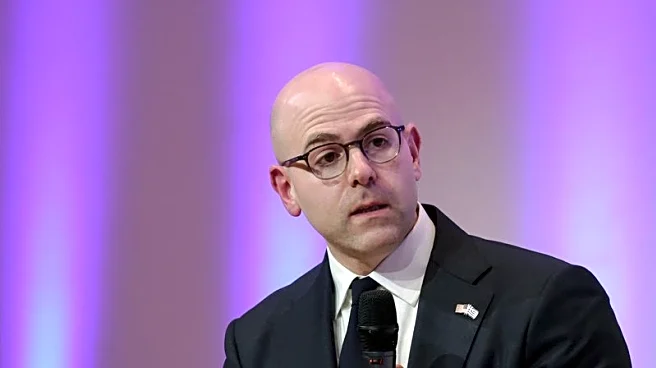What's Happening?
Recent developments in prostate cancer treatment have highlighted significant advancements in systemic therapies aimed at improving patient outcomes and quality of life. The industry is focusing on new targeted options that address the distinct classifications of prostate cancer, which are defined by hormone sensitivity and metastatic status. Notable progress includes Novartis's Phase 3 PSMAaddition trial, which demonstrated improved progression-free survival in metastatic hormone-sensitive prostate cancer. Additionally, ORIC Pharma's Phase 1b trial has validated the EZH2 inhibitor class, diversifying future treatment options. These advancements are reshaping the treatment landscape, with new approvals such as Pluvicto in the 2L+ mCRPC setting, offering more effective alternatives to traditional therapies.
Why It's Important?
The advancements in prostate cancer treatment are crucial as they offer new hope for patients with hormone-sensitive and metastatic prostate cancer. The introduction of radioligand therapies and EZH2 inhibitors provides more personalized treatment options, potentially improving survival rates and quality of life. These developments also signify a shift in the standard of care, moving away from hormone-only approaches and towards more effective systemic therapies. The increased competition in the radioligand therapy space is expected to spur further innovation, benefiting both clinicians and patients by expanding treatment options and improving patient care.
What's Next?
The prostate cancer treatment market is poised for further innovation, with several promising trials underway. The industry is closely monitoring new immunotherapies and targeted assets that leverage biomarker stratification to personalize treatment. As these therapies progress, they may redefine the standard of care and unlock new patient groups. The ongoing trials and data releases will continue to shape the future of prostate cancer treatment, potentially leading to more effective and accessible therapies for patients worldwide.










